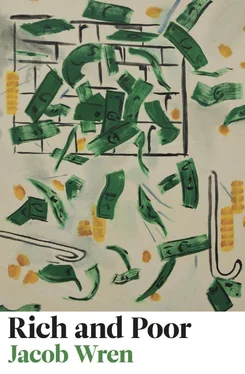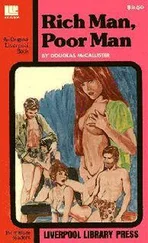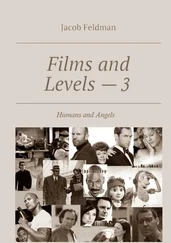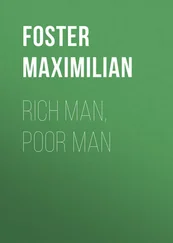I prefer to do legal business, but of course a fair bit of the illegal stuff also runs through the books, as it does with any large corporation. What has always been important, even crucial, is that if there is black money to be found somewhere within our organization, I know absolutely nothing about it, in order to prevent future liability. Emmett has always been one of the many employees careful to shield me from specific details of our more questionable pursuits, an undertaking he regularly achieves with effortless panache. For example, during several investigations I was able to testify, even attached to a lie detector, that I knew little or nothing regarding the aspects of our business being investigated. For this I genuinely have Emmett to thank.
And while I consider him one of my closest friends, and also the clear favourite among my many lawyers, it is equally important that I treat everyone within the organization as if they were family. Even a few minutes of my time, to ask what file they are working on or how their kids are doing at school, can serve to put a human face on what, at times, might threaten to become an overwhelmingly bureaucratic daily routine. What is a corporation if not a few million individuals who can be charmed and coerced to work even harder? Since I don’t have Emmett’s substantial humour to fall back on in these small, daily interactions, I generally try to keep things simple, keep the questions coming, make a show of my interest in the details of their life. Since I have literally thousands of these conversations every year, I cannot remember everything, but you would be amazed at how many things I do remember.
Over the years, watching Emmett work a room has also proven instructive. I certainly can’t match him joke for joke, but I can watch and learn, and I will admit, on occasion, to stealing a few of his best lines. There have even been those embarrassing moments when, standing beside him at some corporate function, Emmett has witnessed me telling one of his jokes as if it were my own, and knowing who signs his cheques, played along, laughed along with everyone else, though I know the difference between a real Emmett laugh and a fake one and, on such occasions, the laughs were definitely false. But he would never chide me for such small abuses of our friendship, knowing, as he does, that I need the laughs much more than him, that it all comes much less easily to me. I also knew I had an unspoken advantage, because while people laughed at Emmett’s jokes naturally, without giving it a second thought, everyone laughed at mine, plagiarized or otherwise, because they felt required too — a fact I try not to think about too often.
Friendship is a strange idea, difficult to quantify and, at times, even more difficult to maintain. Clearly a friend is someone you enjoy spending time with. However, a friend is also someone you continue to support even during periods when they are considerably less pleasurable to be around. The loyalty of friendship often contains a kind of tautology or feedback loop: the longer you are friends the more loyal you become, and the more loyal you become the longer you remain friends. People change over time, and though one cannot help but compare the way one’s friends are today with the ways they might have been in the past, friendship requires that such comparisons must never diminish, or tarnish, the basic steel of the relationship. There is that expression: you can choose your friends but you can’t choose your family. Yet with friends one has had for a very long time there is a sense in which one cannot choose them either, in that you cannot choose the ways in which they develop, cannot choose the person they have become.
In the elevator a few days ago, an employee rushed in just as the doors were closing. It was only me and him in there; usually the elevator is more crowded, and I recalled meeting him once before, that his name was Jim, he worked in accounting and had two children. (These are the kinds of details I pride myself on retaining.) I asked how his children were and Jim said his daughter had just begun first grade. I made a few quick jokes, before the elevator reached his floor, not particularly funny, about how I wouldn’t mind heading back to first grade myself, at my age nap time was starting to look pretty good again, real corny shit. But I felt relaxed saying it, as he laughed, only because he felt he had to, an ingratiating fake laugh that I also didn’t mind. In the ways I felt relaxed I knew I was channelling Emmett, who would have told much funnier jokes and told them more naturally. I felt happy in that elevator, for that brief minute, telling corny jokes, confident they didn’t have to be any funnier than they were because, at the end of the day, I run this place, with all the advantages I have earned over the years and deserve, and I believe this feeling of happiness had something to do with friendship.
2.
The first couple of questions are gentle. I breeze through them easily, mentioning a few lessons learned on past (made-up) jobs and how, psychologically, I believe I’m built for a life in security, oriented towards details, fastidious, acting swiftly when the moment requires it. They seem pleased with my answers, friendly. I even manage to make them laugh with a story about an operative I used to know who always checked everything three times, so we called him Goldilocks (which drove him crazy). As I’m telling the story it feels like something that really happened to me, not something I read somewhere, and this feeling of honesty gives me confidence. If I believe my own stories perhaps they will as well.
I’ve once again brought along the book, the autobiography, and they notice it at my feet, sitting atop my briefcase (where I carefully placed it to incite pertinent questions). This is where my problems begin. No, I didn’t realize he was one of their main clients. Yes, I have admired him for a long time now. I respect many important, successful men, believe them to be strong leaders for society, important examples for us all. Yes, I like his biography, find it informative and honest (at this point I’m gritting my teeth slightly, hoping it doesn’t show). No, I didn’t realize their organization was mentioned in the book, it seems I haven’t gotten that far yet. And as I’m answering these questions, lying through my teeth as mildly and honestly as possible (knowing the best lies are those closest to the truth), I begin to realize they are also angry about the book at my feet, that their mention within it must not be entirely positive, and even though he is one of their more substantial clients, in their way they also hate his guts, in a different way from me since, for them, it has even more to do with the grind of recent personal experience. They have met him, dealt with him on a daily basis, while I have not.
I change topics, trying to salvage what I can of the interview, asking some practical questions I hope will be as neutral as possible: How many people work for their organization at any given time? What do they think is an ideal number of employees for a small and for a large operation? Is there any additional material I should read concerning their company? It’s no use, they have already lost interest in me. It is as if, by bringing the book along with me, I have aligned myself with someone they are disgusted by. Ironic, since he is also the man I am most disgusted by, the man I want to kill. But it is too late to admit my distain for him. I should have been more cautious in my previous answers. Now it would seem that I was changing my opinion only to please them.
The moment I step out into the reception area I feel crushed, like I might fall suddenly to the ground, crumple into a small heap. I do my best to regain myself, smile at the young man waiting for the next interview, repeat what the previous applicant said to me as he was leaving, that they’re nice in there and he has nothing to worry about, but fear I don’t sound particularly convincing. They are nice and he has nothing to worry about, but my cause is already lost.
Читать дальше












